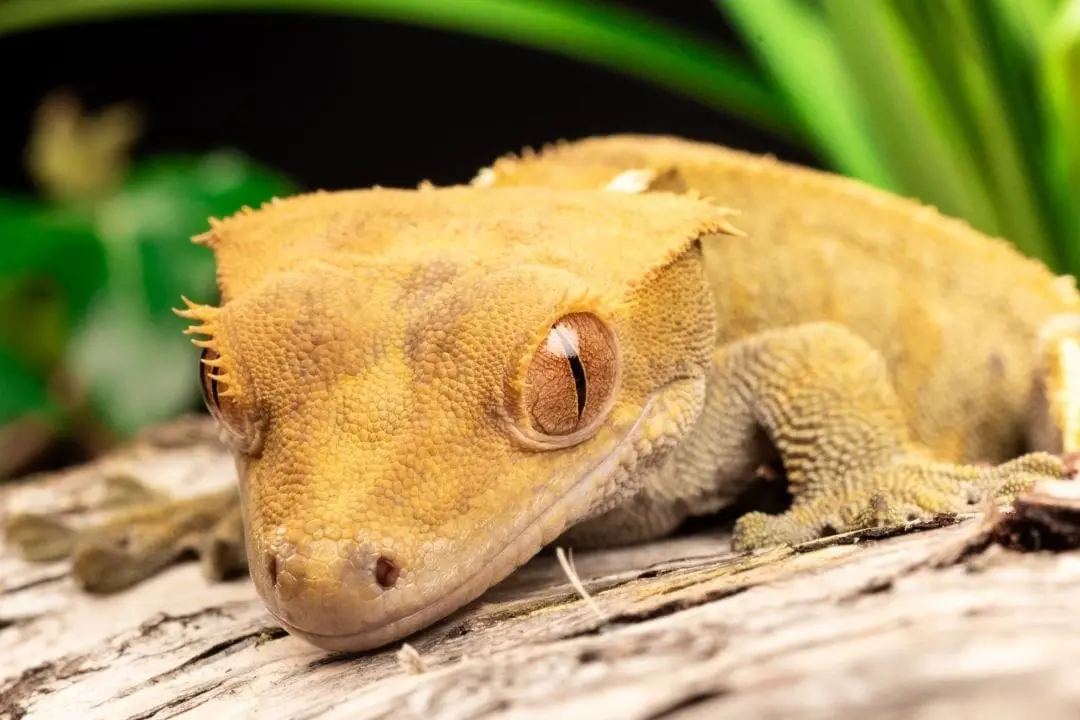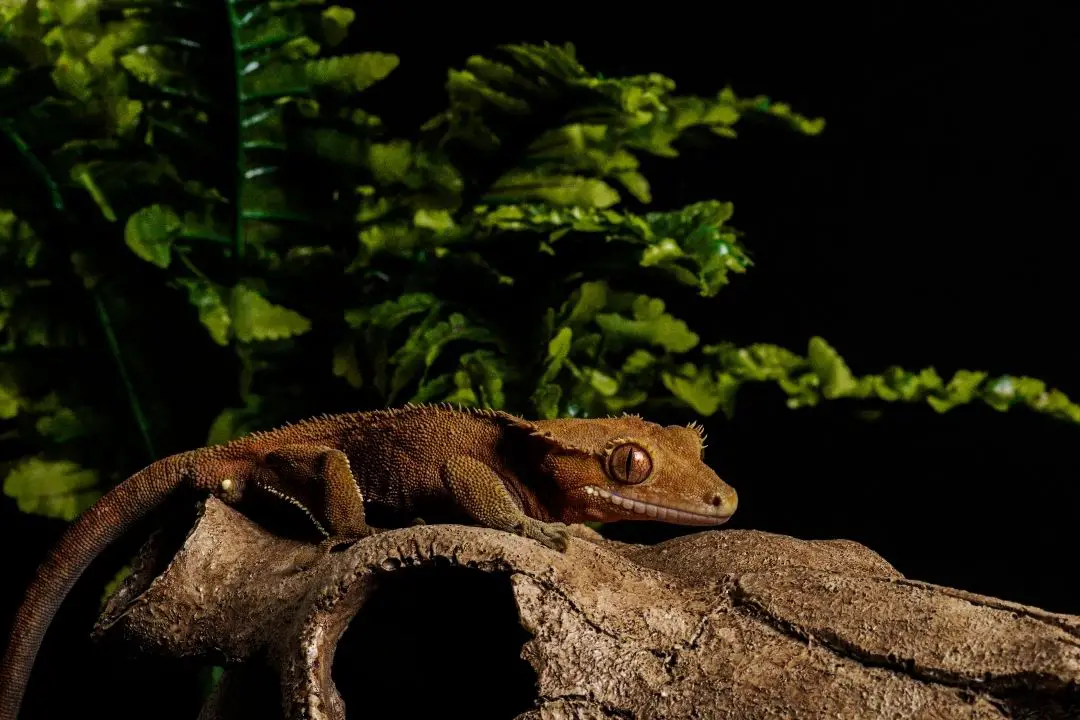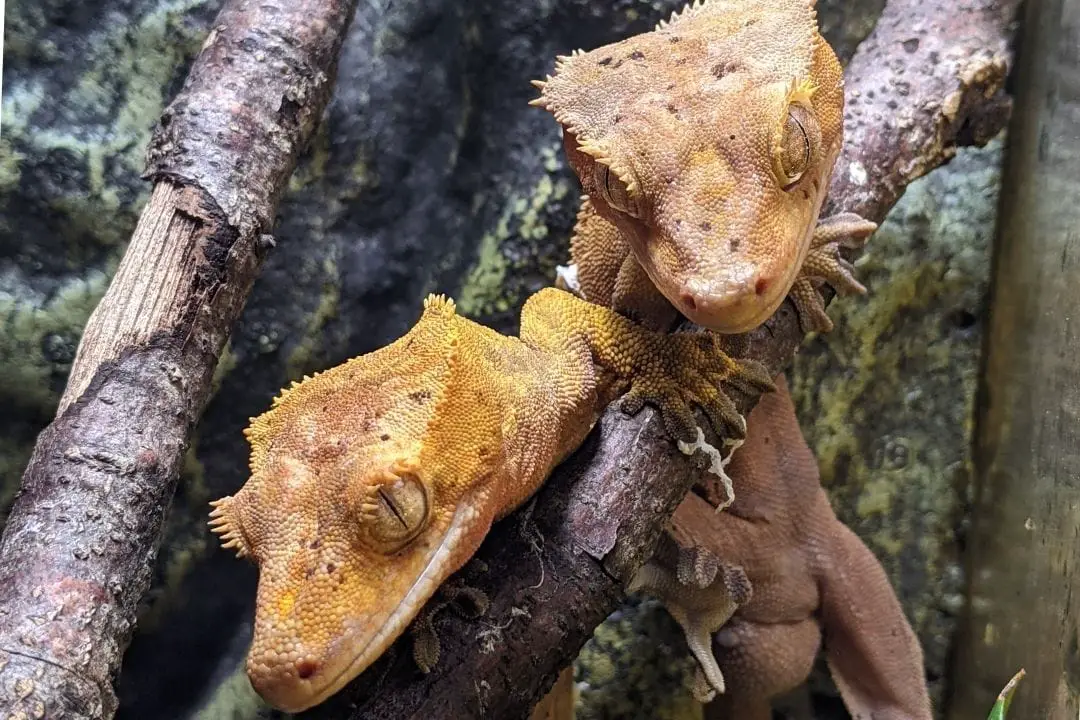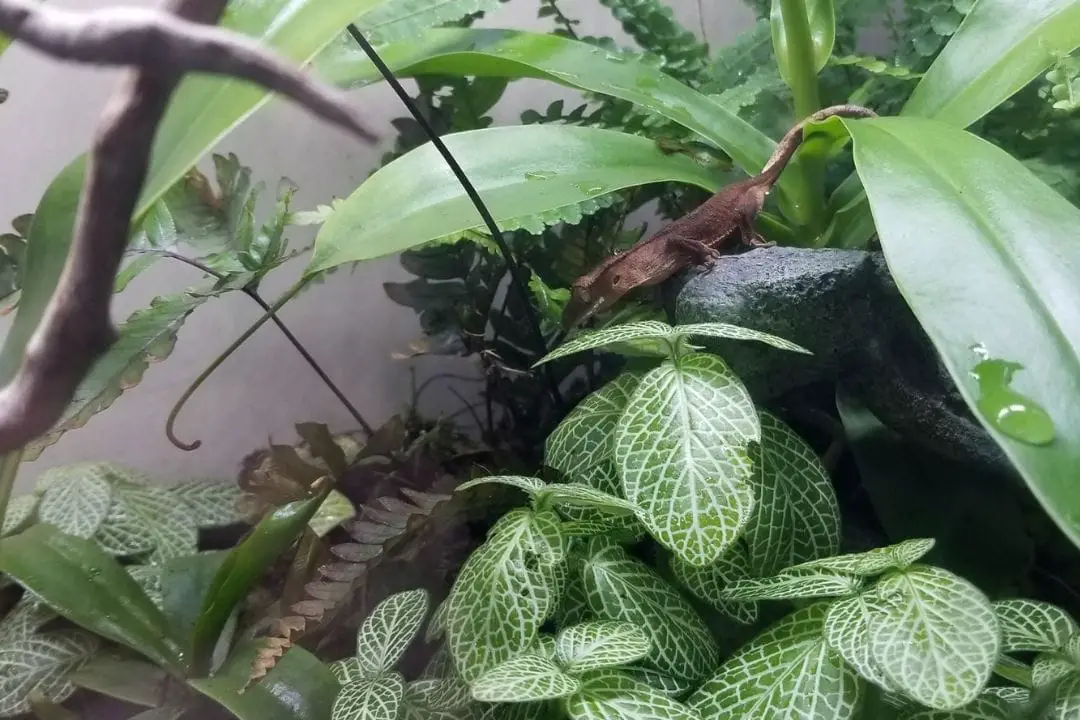Crested geckos (Correlophus ciliatus) are a small-to-medium sized gecko native to New Caledonia.
These little guys were once considered to be extinct until a thriving population was found outside of their previously known range.
Now they are incredibly common in the pet trade. If you want to own one, you may be wondering:
How long a crested geckos live?
On average, a pet crested gecko will live to be 10-20 years old. They were only introduced to the pet trade in 1994, so it is unknown what the true average age range is at the time of writing.
For a complete guide to enclosure setup, feeding, daily care and breeding,
check out my Crested Gecko Care Guide
Lifespan in the wild
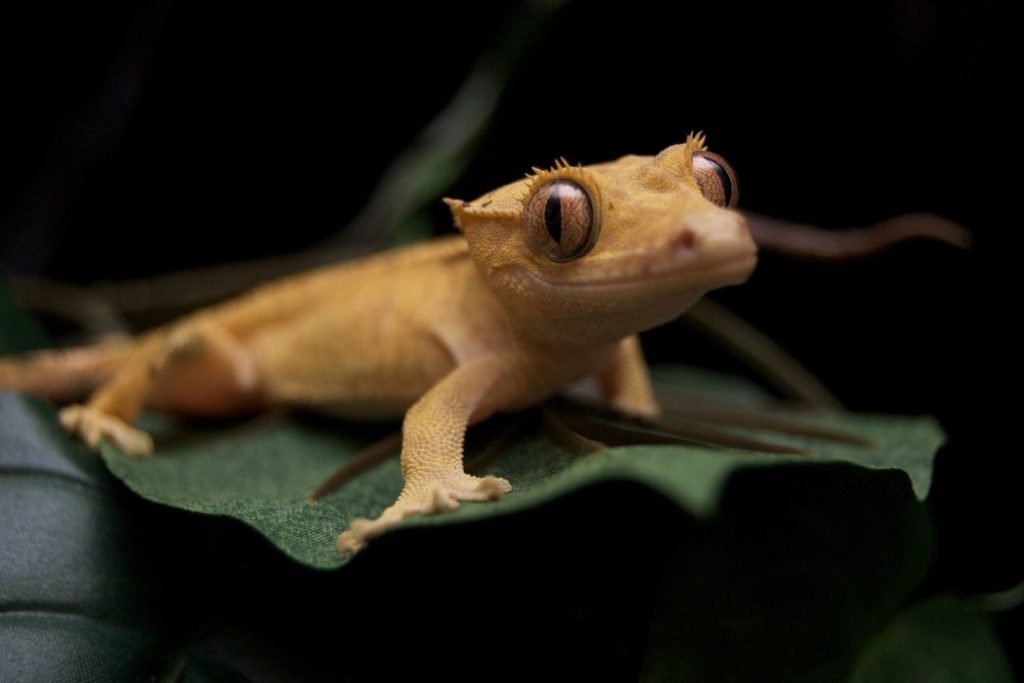
Sadly, very little has been written on the wild lifespan of the crested gecko. It is likely to be less than the captive lifespan.
They can reproduce after they reach about 1 year of age, so the population can be sustained even if they die fairly young in the wild.
Older crested geckos frequently struggle to climb and find food as they age, so they will likely pass once they reach this stage.
Owners have noted this can happen once the animal reaches over 15 years, but it heavily depends on the individual. Some animals stay healthy and die very suddenly, while others will have a noticeable decline.
Wild crested geckos also face predators, disease, parasites, and poor weather.
Many other reptiles in their home range will eat them and there are introduced predators like little fire ants and domesticated animals like dogs and cats.
This means that much of the population will die from predation or other hazards. Wild geckos also have a heavy parasite load.
Parasites can easily kill a gecko by consuming all the nutrients it needs or transmitting diseases.
Lifespan in Captivity
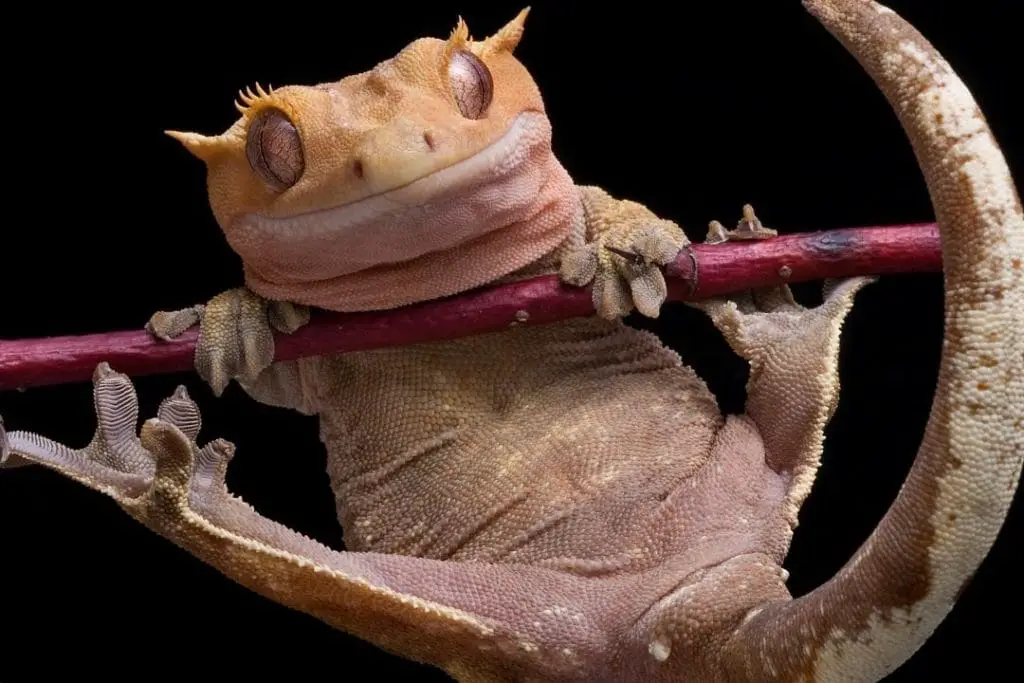
Captive crested geckos can I’ve to be over 20 with good care. This includes making sure they have the right nutrients and making sure they have a good thermal gradient.
They do not seem to have much of a difference in lifespan between the sexes. The main difference comes if a female isn’t given a break of 2-4 months a year from breeding.
They typically stop laying eggs during the colder season in their native range. Females that are not given a break will suffer from deficiencies since they invest so much in the two eggs they produce at a time.
Diet will affect their life expectancy
Diet is probably one of the biggest factors in how long your crested gecko will live.
If you feed them a diet without the right balance of nutrients, your gecko will suffer from serious conditions like Metabolic Bone Disease (MBD).
Calcium and Vitamin D supplementation is recommended for pet crested geckos, specialized diets are available and strongly recommended.
Zoo Med Crested Gecko Food
- Can be served wet or dry to your scaly sidekick.
- Formulated using the latest nutritional information and techniques.
- May also be enjoyed by day geckos, gargoyle geckos and other omnivorous species.
- Contains probiotics for better digestion, stool consistency, weight management and development.
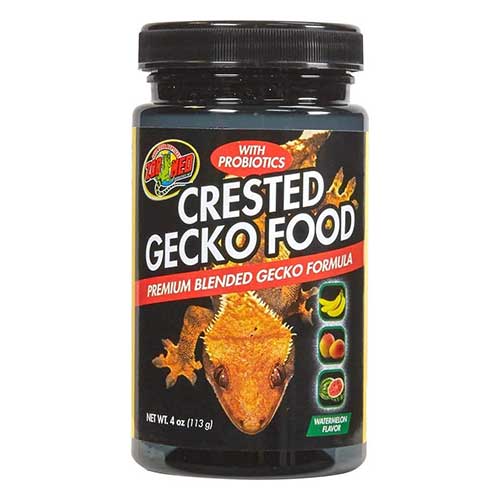
MBD is caused by calcium deficiencies and can warp the bones permanently.
Animals that are affected can have everything from mild twisting in the tail and limbs to serious deformities that cause problems with eliminating and breeding.
Some female geckos with hip deformities from MBD must be neutered to prevent egg-binding.
This can be risky. Many geckos with MBD ultimately need to be humanely euthanized since their quality of life ends up so low.
Keeping your gecko in the right body condition also helps. A thin gecko is not getting enough nutrients and calories to be healthy.
An overweight gecko will experience stress on the organs from the extra fat. See my article about crested gecko size for an average growth rate chart.
Crested geckos won’t live long in the wrong environment
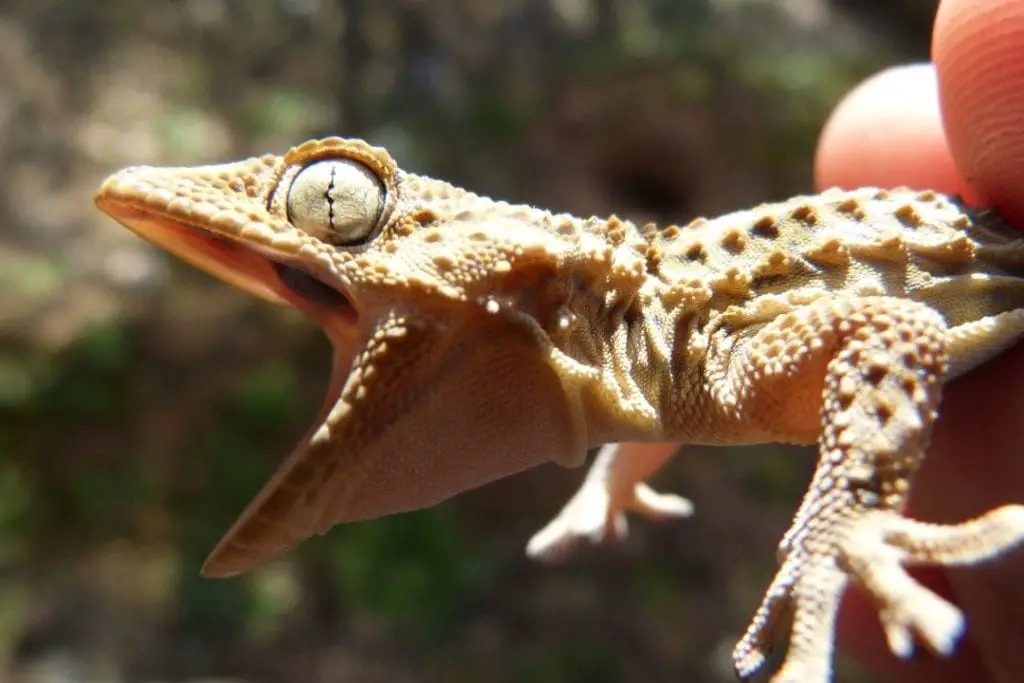
Part of keeping a crested gecko healthy is the right enclosure. They need the right temperature gradient and lighting.
Your gecko needs a thermal gradient to allow it to thermoregulate. Since this is an animal that likes to climb, the gradient should be vertical.
Your gecko needs plenty of space and thick real or artificial vegetation to hide in. They need to feel secure to avoid being stressed out.
They also need to climb and move around to help keep them in a healthy body condition. You should set up the enclosure to allow the animal to meet its needs and feel safe and secure.
Life threatening diseases and parasites
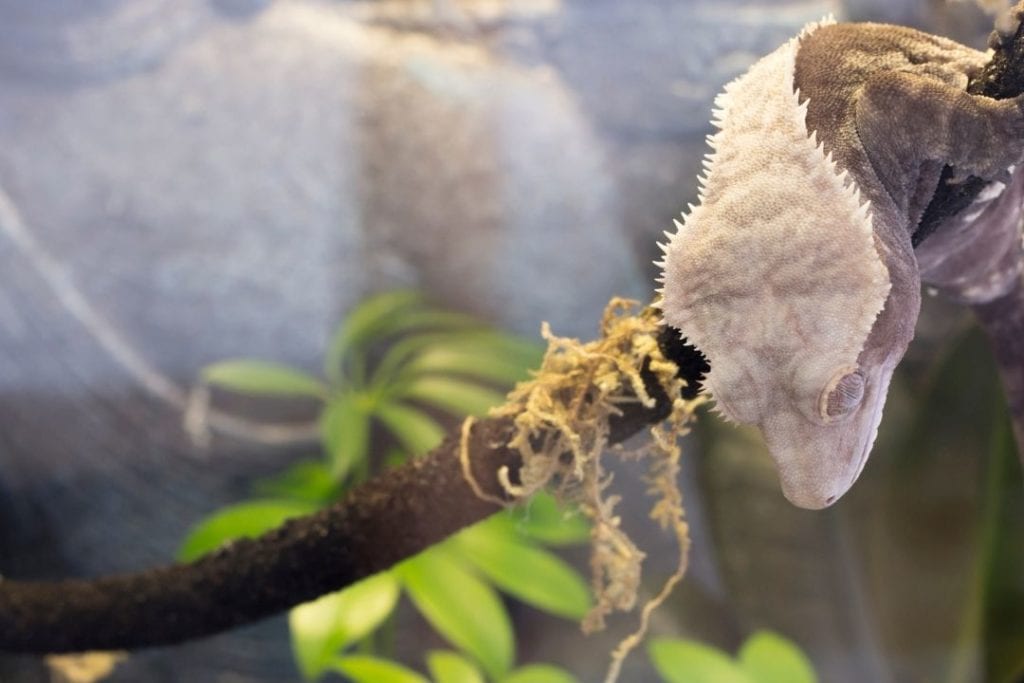
Avoiding parasites and diseases is very important for keeping your gecko healthy and giving it a long life. The first thing is making sure your gecko stays free of disease and parasites.
Any new reptile in your home should be quarantined for a few months.
They should be tested for parasites and checked for mites.
Quarantined animals should be kept in a separate room and all supplies used for them should be kept separate from any other reptiles you own.
Mites spread very easily and are hard to spot in a properly furnished enclosure. Mites can spread disease and will make your gecko anemic if they are not taken care of quickly.
Issues like impaction can kill your gecko if it isn’t caught in time.
Hard-shelled insects, dehydration, and substrate ingestion can all harm your gecko.
You may notice the gecko hasn’t produced stool or seems to be struggling. You need to offer softer-bodied insects and add more water to the diet powder to help.
You should also visit the vet if it has not produced a stool at all.
Other problems that can affect crested geckos lifespan include dehydration and shedding problems. Shedding problems normally indicate a problem with humidity and dehydration.
You should mist more often and offer a humid hide. If your gecko cannot shed its skin, it may suffer from injuries like losing its tail or toes.
This opens up the gecko to a potentially fatal infection. Your gecko should eat its shed to help regain lost nutrients.
Geckos that struggle with this due to age may need supplemental nutrients. Dehydration is an obvious killer much like it is for every other animal on the planet.
Be sure your humidity is at the right level and make sure your gecko has both water in a cup and water on the enclosure and plants available. Some older geckos need to be offered water from a dropper.
Conclusion
I hope this has taught you how to give your crested gecko the best life possible.
You can have your pet for well over 15 years if you care for it well, and some animals may even make it well past 20.
If you have any questions or comments, please leave them below.
